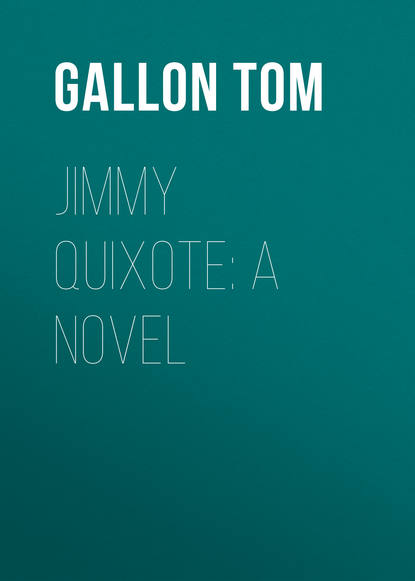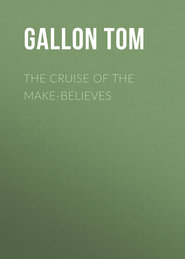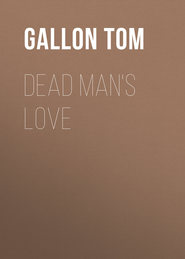По всем вопросам обращайтесь на: info@litportal.ru
(©) 2003-2024.
✖
Jimmy Quixote: A Novel
Настройки чтения
Размер шрифта
Высота строк
Поля
"I know you do. And I'm glad to forget that the feet are marching at all; glad to think that if they march my way, it'll only be perhaps over my grave. I've done with it, and I've thought sometimes that you could be done with it, too."
Moira stretched a hand across the table, and touched the hand of the woman. "I'm not ungrateful – and we lead our quiet lives here," she said.
"I know that," replied Patience sharply. "But I don't mean that anyone else shall know that; I've got my pride – more than most folk. Who's Alice, if it comes to that, that she should be taken about, and drive in her carriage – and all that? If they took one girl – didn't I take the other; me that they looked on as a servant? I'll soon show 'em."
"You wouldn't show what wasn't true, dear?" whispered Moira.
"Yes – I would," was the surprising answer, "and not think twice about it. Who's to know?"
"I wouldn't do it," said Moira. "You'll only be sorry afterwards."
"Shall I? You don't know me," she retorted. "My pride'll keep me from ever being sorry. Now for it!"
Moira leaned her elbows on the table, and rested her chin on her clasped hands, and watched. A slight flush of excitement had grown in the white face of Patience; her lips were set in grim determination as she poised the pen, and waited before setting down in black and white what was in her mind. It seemed difficult of expression; after a moment she raised her eyes hopelessly to the girl. "I don't know how to begin," she muttered, with a glance at the door, as though fearful of being overheard.
"I thought you'd find it difficult," was the reply. "Why not say at once that we drive every morning until luncheon; pay calls in the afternoon; are never to be found at home in the evening? If you want imagination – Why, what are you writing?"
The pen was jerking rapidly over the paper, and Patience was saying the words aloud as she wrote. "Dear Madam, – I have been meaning to write to you for a long time – but London life takes up so much of my time – and Moira – 'is it one "r," Moira?' – is always out and about – when not with me, then with some young companion." She glanced up half shyly at Moira, who was watching.
"Can't you spell 'companion'?" asked Moira demurely.
"Of course I can," explained Patience. "My in-vest-ments having turned out better than I hoped, we are finding this house almost too large for us, but should not like to change. I do not think that we could go back to the country now; we seem to want more life than we used to have, especially now after my re-tire-ment. I am afraid sometimes" – she raised her eyes again to the face of the girl, and then lowered them – "afraid sometimes that the life is almost too gay for Moira; but then she is young, and – "
Her voice trailed off, and she finished the letter with a commonplace or two that she had dug out of the respectable past. Then she looked up again at the girl, half appealingly. "It ain't exactly what I wanted to say; 'tain't strong enough," she said. "Couldn't I write something underneath?"
"Tear it up," suggested Moira, in a whisper. "Why should you write such things – when they'll know – "
"The letter's going," exclaimed Patience sternly. She turned again to the page, and took up her pen; began to write, while she muttered the words aloud.
"P.S. – I name no names; but there may be parties that have said things about me, and it is my wish to right myself in the eyes of all. Moira sits opposite me while I write" – she raised her eyes again for a moment, and lowered them quickly; perhaps she thought of the many, many nights on which the girl had sat there, with the lamp between them – "having no engagement for this evening outside."
She addressed the envelope hurriedly, as though afraid her resolution might fail. Moira, glancing across at the thing when it was finished, raised a protest.
"It's no use sending it to Daisley Cross," she said; "they're in London."
"I ain't going to waste an envelope," retorted Patience, after gazing at it for a moment a little blankly. "It'll find 'em."
So it came about that the letter found its way to the breakfast table of the Baffalls at Daisley Cross, for they were down there, as it happened, by a sudden whim on the part of Alice.
"Now I do hope nobody I know has died," murmured Mrs. Baffall, as she turned the black thing over and over. "No – I don't know the writing – but the postmark's London. Now, it couldn't be – No – it wouldn't be them; they were quite well a week ago; besides, the writing isn't the same. Now I come to look at it," added Mrs. Baffall, brightening, "it isn't unlike Janie Ford's writing; she has just those little twiggles at the ends of the words. And yet it isn't Janie."
It occurred to her at last that it might be well to open it, which she did, shaking her head as she did so, and murmuring suggestions as to who the writer might be. The letter open, she began to punctuate her reading of it with little soft "oh's" now and then, and an upraised hand. Mr. Baffall complacently waited until she had turned the page, and had got to the end of the letter; then, as she laid it down and looked round at the two expectant faces, he smiled, and asked who it was had really written it.
"Well – you'll never guess," said Mrs. Baffall. "If anyone had come to me this morning, and had said to me – suddenly and without any warning – 'Flora Baffall, you're going to have a letter with the name of Patience Roe at the end of it' – well, I don't know what I should have said to them. Ten to one I should have laughed."
"And what does Patience Roe want?" asked Mr. Baffall. "Not in any difficulty, I hope?"
"Moira didn't come to see me in London," said Alice. "At least – not after that once."
"Well, it's not surprising," said Mrs. Baffall, appealing to the letter, and seeming to shake her head over it. "According to what Patience says here, they never have time for anything – she speaks of Moira as being almost too gay."
Alice started, and looked round quickly with a frown. "What?" she exclaimed. "Gay? Well, she didn't look very gay when I saw her; surely you didn't think so Aunt Baffall? A poor washed-out, shabby thing – "
"Patience says something about investments having turned out better than she expected," murmured Mrs. Baffall. "Which is very pleasing, as Baffall himself would tell you, my dear – knowing something about it. If I didn't know Patience, I should almost think this was like a boasting letter – what we should call a bit of show-off. But it can't be that, of course."
When the meal was ended, and Alice had gone singing off to her own quarters, Baffall came round the table to his wife, and put a friendly hand on her shoulder. "May I see the letter, mother?" he asked.
She handed it to him, and he read it in silence; screwed up one eye over it, and tugged at his short beard, and rumpled his hair. Finally, tapping it with a stunted forefinger, he gave his verdict.
"When anybody writes like that – for no particular reason – it's either one or other of two things. Either they're what we'd call in business 'bluffing' – which means that the letter's got to be read the opposite way, in a manner of speaking – or else they're merely bragging for the sake of bragging."
"That isn't her way, I should think," broke in Mrs. Baffall quickly.
"I should think not," retorted her husband, "but you never can tell. There's some reason for it, and it concerns that dark-eyed girl. I'm not much of a judge – but what did you think when you saw her in London, mother?"
"Well – without meaning to be unkind, Daniel, I did run an eye over her," said Mrs. Baffall; "and I must say she was poor as poor. Neat, mind you, as such a girl always would be – and more of a lady than half a hundred of 'em would be, no matter how much you spent on 'em; but poor – what I'd call make-shifty, if you'll understand."
Mr. Baffall nodded slowly. "I understand," he said; "therefore, it looks like bluff. Of course, the investments may have turned out much better; but you can't lead me to believe that that old woman would be the sort to make a splash about it, even if she came into a quarter of a million."
Mr. Baffall took a turn across the room, and touched the handle of the door to be certain that the door was closed. Then he came back to Mrs. Baffall, and spoke in a lowered voice.
"How do you think it would be if Alice was to go – "
Mrs. Baffall shook her head vigorously; Mr. Baffall nodded slowly, with a perplexed face. "Perhaps you're right," he said slowly; "perhaps Alice isn't quite the sort. Not but what, being brought up as children, I should have thought – "
It was the turn of Mrs. Baffall to shake her head again. "It doesn't matter much how you bring 'em up, Daniel, or how you don't; it's what's in 'em to begin with. She's a nice girl, Daniel" – the old lady seemed to indicate the girl who had gone singing from the room – "but God didn't give her quite the sort of heart you an' me was looking for. Come and kiss you, she will, and her smile is beautiful to see; yet it leaves a longing somehow for something you never get."
"She always looks very nice – and is much admired," suggested Mr. Baffall simply.
"Which is something to be grateful for," replied Mrs. Baffall, brightening a little. "If only I could have understood the other one."
"I wouldn't worry about it," said Mr. Baffall, with a hand upon her shoulder. "I daresay the other one's happier as she is."
Nevertheless, Mr. Baffall was not altogether happy about the matter; he pondered over it with bent brows while he smoked his morning cigar round what he called the "estate." It ended, in fact, by his taking the cigar and the letter in the direction of the rectory, in the hope for temporal advice at least. There, without ceremony, he spread the letter before the Rev. Temple Purdue (grown a little greyer with the years, but otherwise unchanged) and indicated by a wave of the hand that it was to be read.
Mr. Purdue turned it over solemnly to find the signature; turned it back again to begin the reading of it. When he had finished he took off his spectacles, and laid them on his writing table, and looked up mildly at Mr. Baffall.
"Seems very satisfactory," he said. "Really, my dear Baffall, it is kind and thoughtful of you to have given me news of old friends like this – very kind indeed. I always had a great respect for Patience Roe – a very great respect indeed."
"That's one of the letters," said Mr. Baffall, leaning forward, and tapping it with a finger, "that wants reading between the lines. There is more in it than the mere words – and, according to Mrs. Baffall, it don't bear out what she thought when she saw the girl in London; nor, for the matter of that, does it bear out what I saw. Mr. Purdue, I've got a sneaking feeling that I should like to do something for that girl – young lady, I suppose you'd call her now; and I think that thought's in Mrs. Baffall's mind too."
Mr. Purdue looked at his visitor in some perplexity. "I'm afraid I don't quite understand," he said.
"Mr. Purdue, sir," went on Baffall solemnly, "when I was in business, if things went very wrong with me, and I didn't quite know where to turn for money or credit, what was the first thing I did?" Mr. Purdue shook his head. "Why, I made believe that I'd got more money than I knew what to do with, and was looking out for investments; or I suggested that business was so flourishing that I really couldn't entertain the idea of taking any more. That was my move – and that's the move in that letter. For all we know, they may be in Queer Street, and yet much too proud to let anybody show 'em the way out."
"You distress me greatly," said Mr. Purdue, with a sigh. "What do you suggest should be done?"
Baffall shook his head. "Whatever's done must be done delicately," he said. "If me or Mrs. B., or Alice was to go – and Alice would want the carriage – I can understand their backs would be up – and their pride would stand in the way; I was always a bit afraid of that girl myself. But if there was anybody in London – struggling a bit, perhaps, like themselves – it might be a help to the girl, for it seems to me that she must have a pretty slow time of it with that old woman."








